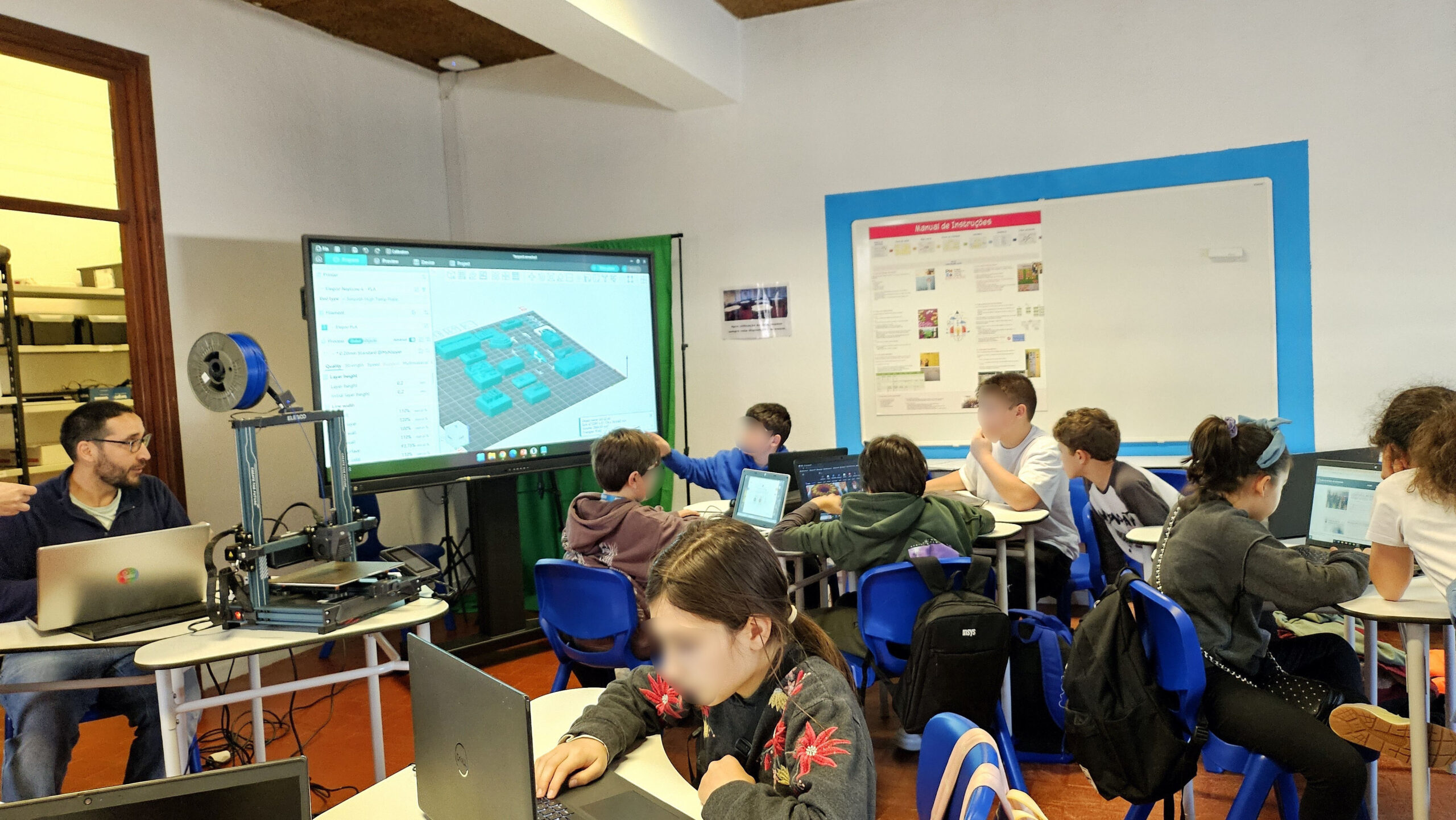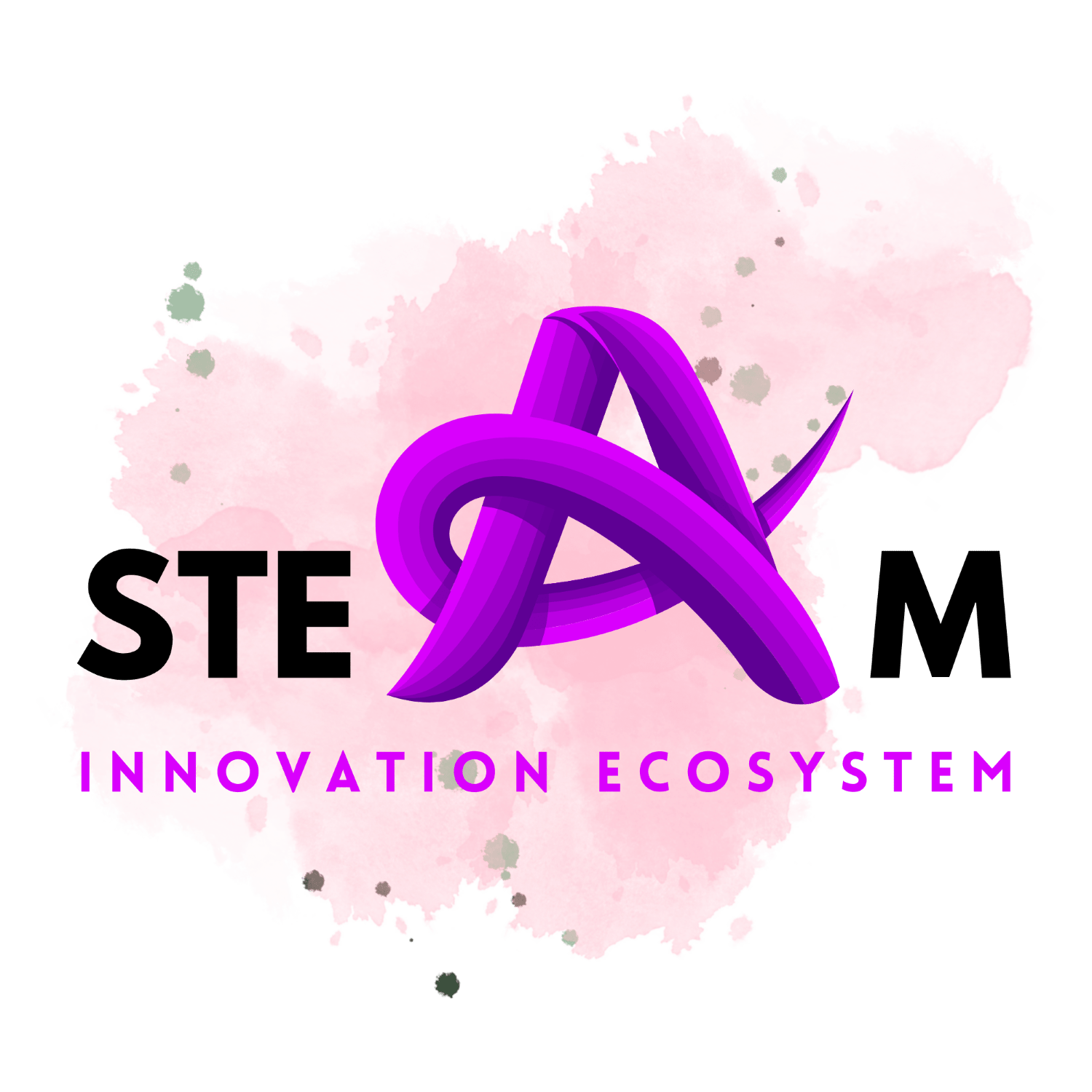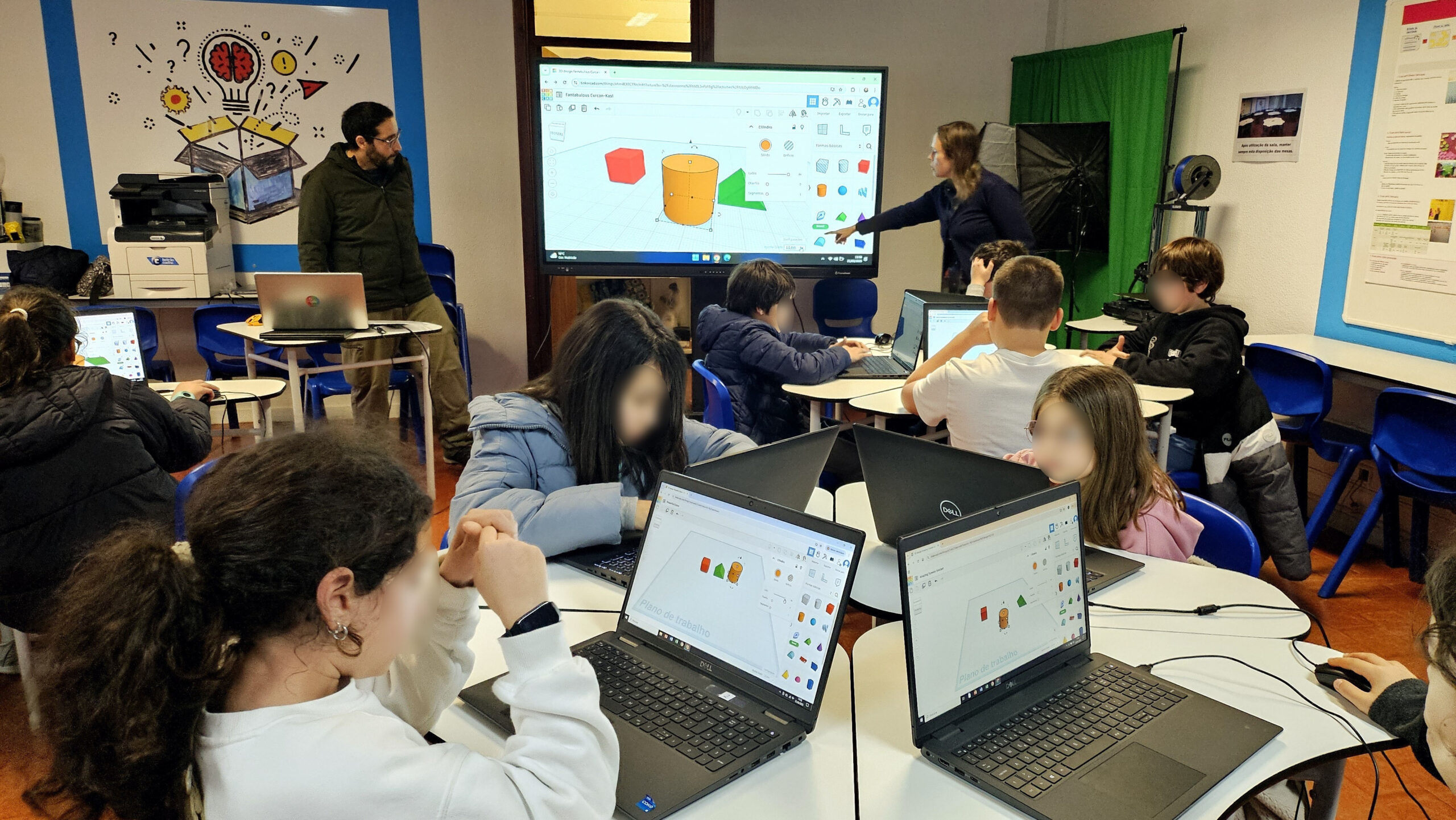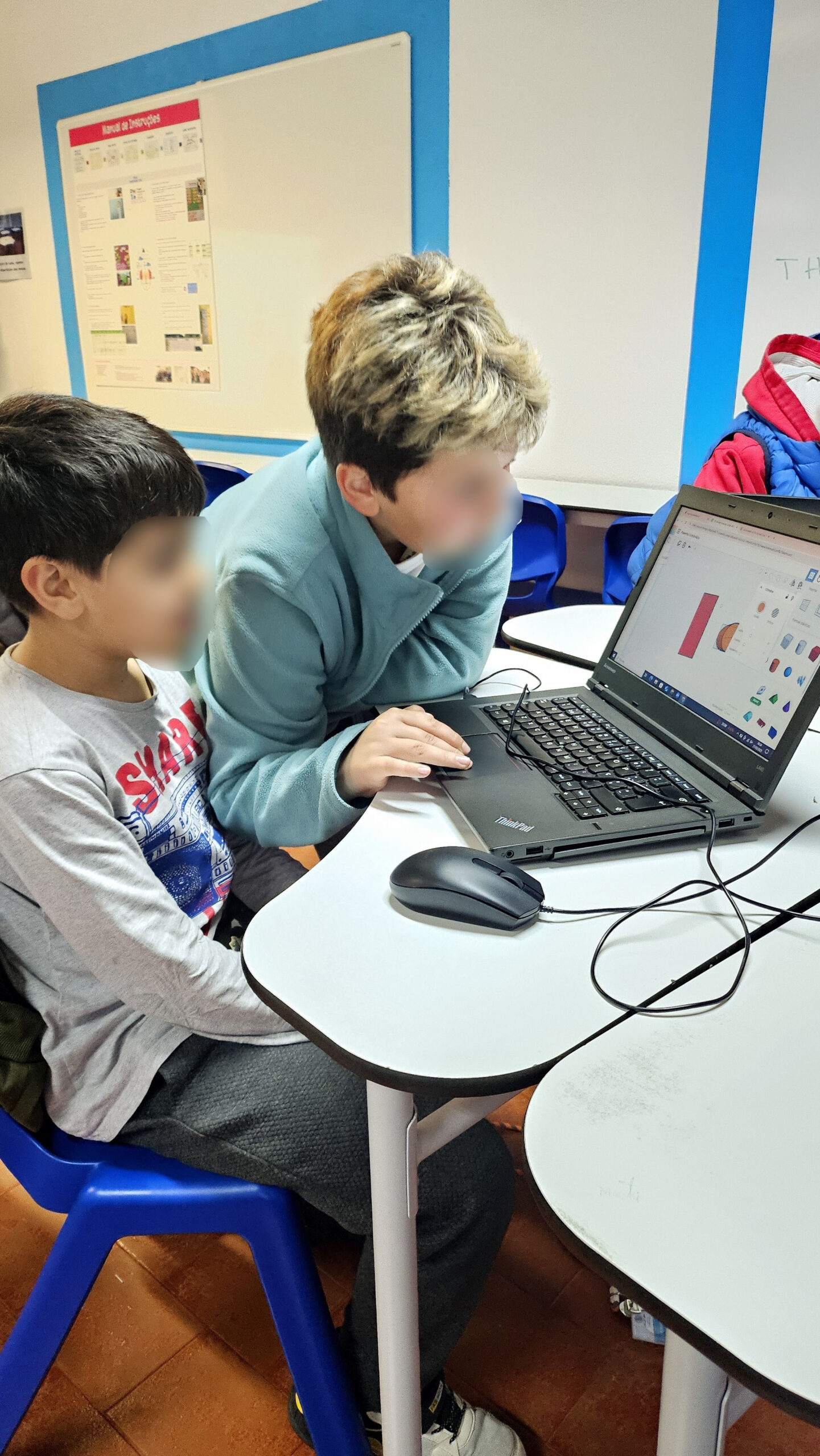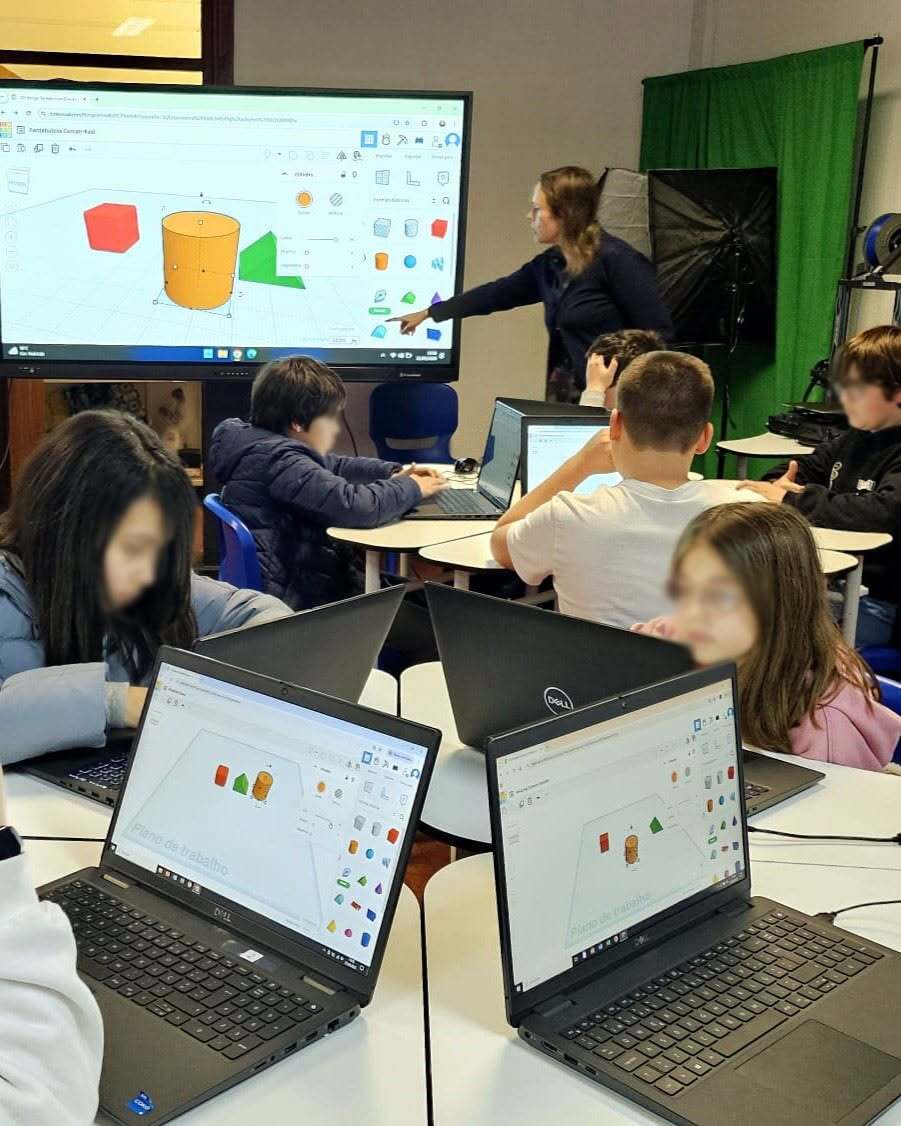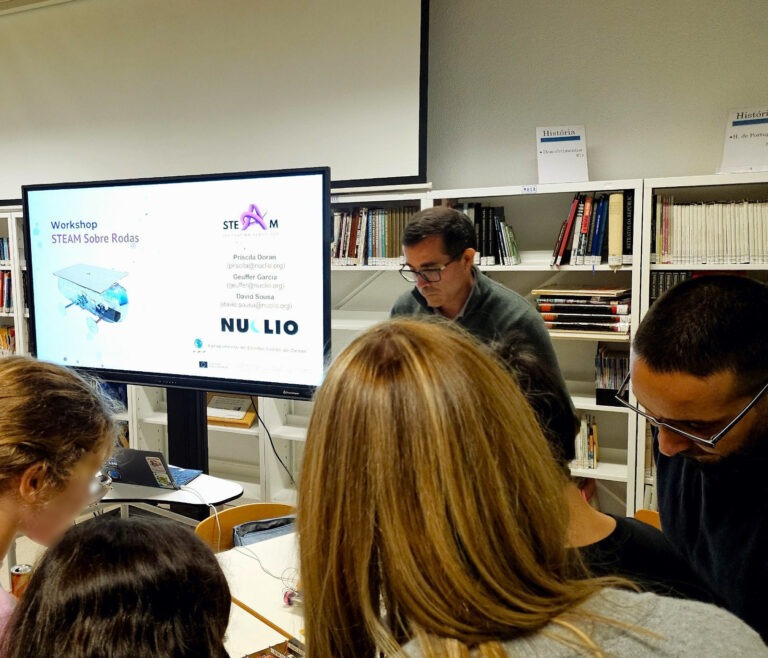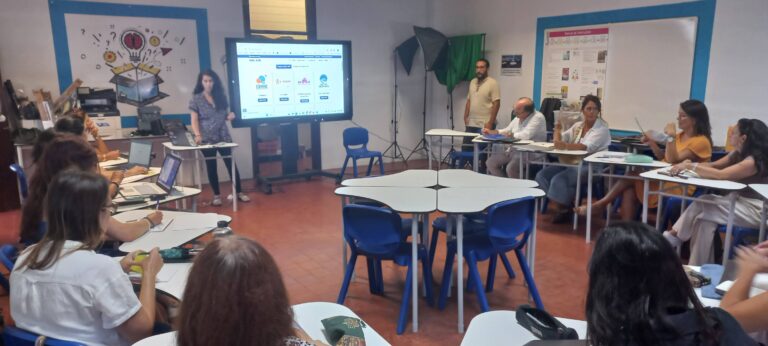Article by Nuclio
The STEAM INNOVATION Project held two 3D modelling and printing workshops at the Conde de Oeiras School Group in Portugal on May 21st and 28th. The objective was to introduce students to the world of digital fabrication, enhance their skills in this area, make them digitally ready for the future and show them how to turn their ideas into real, tangible creations.
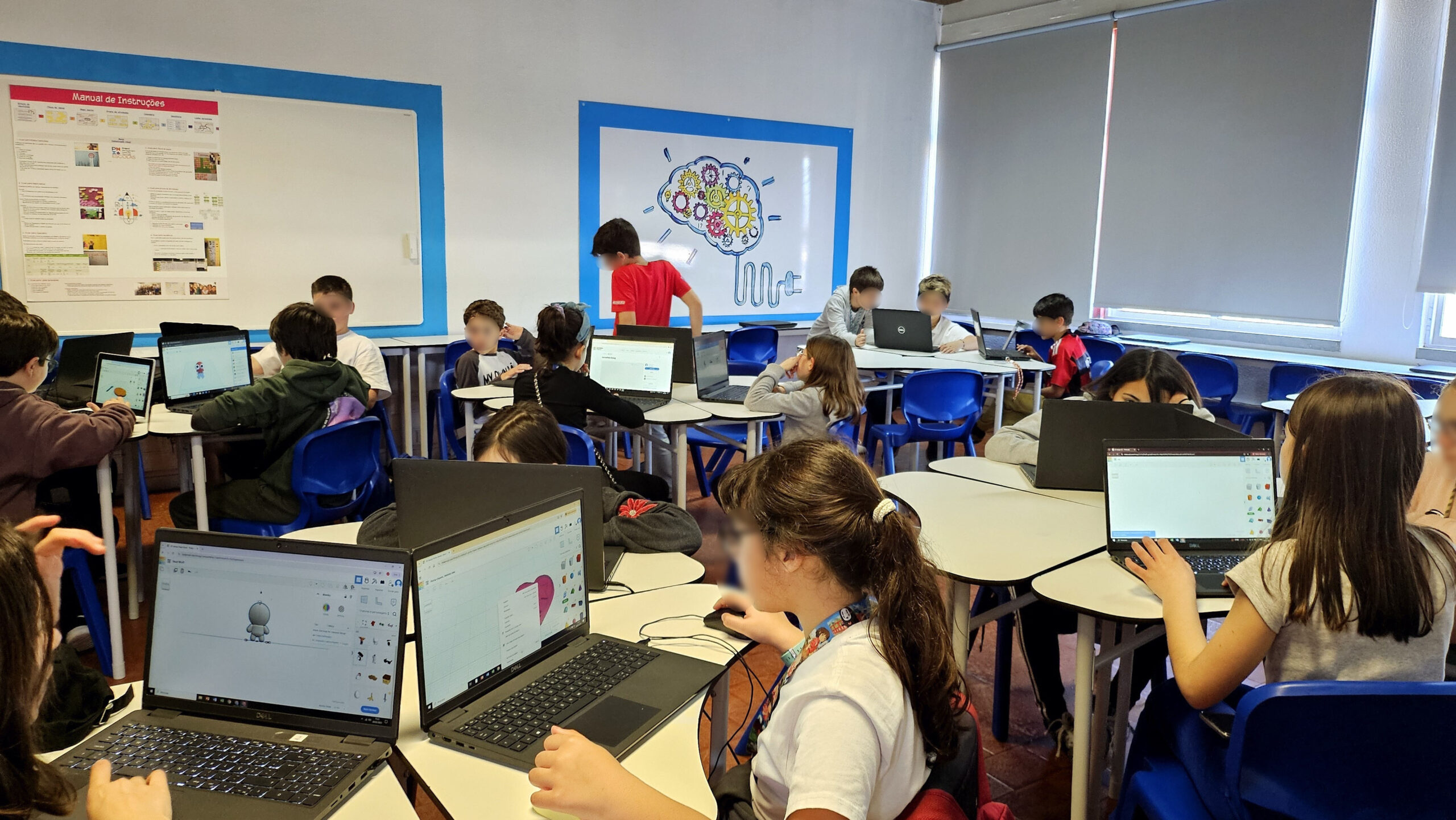
Our trainers guided the 21 participating students step-by-step into the basics of 3D modelling. During the workshop, we used the TinkerCAD tool, a free online 3D design program. With a trial-and-error approach, the students got familiarised with the nearly unlimited potential of 3D modelling, learned how to construct and manipulate 3D geometric shapes and progressively gained confidence in their ability to create digital 3D models. Each student successfully designed their customised keychain, and some of them took it a step further and designed completely unique and imaginative pieces that went beyond the template given. This learning process allowed students to not only develop practical technical skills but also to express themselves through design, an essential aspect of the STEAM educational approach.
After they were satisfied with their personalised models, the students were introduced to an open-source slicing software that prepares digital models for 3D printing by converting them into instructions for the printer. The most exciting part of the process, for both students and trainers, was to watch the designs come to reality on a 3D printer. The robotic and hypnotising movements of the 3D printer mesmerised students who, layer by layer, saw their creations materialise right in front of their eyes.
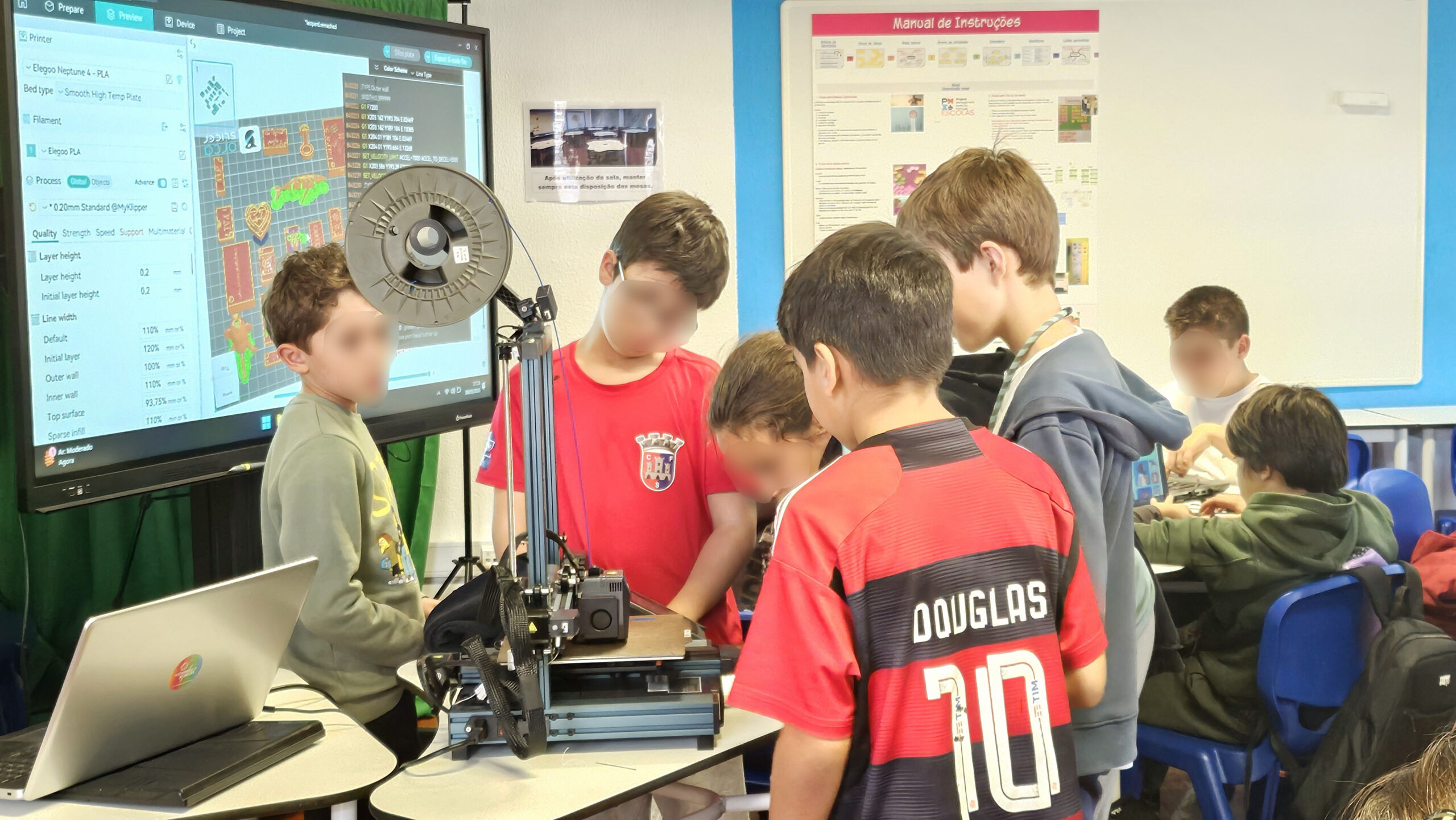
We believe that this type of experience can bridge the gap between the digital and physical worlds and also connect science, technology, engineering, arts, and mathematics in a meaningful way. These workshops equipped students with practical skills in 3D digital modelling and sparked students’ curiosity, creativity, and confidence in their skills. The positive feedback from participants reinforces the importance of integrating hands-on, project-based learning experiences in education, which is a core goal of the STEAM INNOVATION project.
